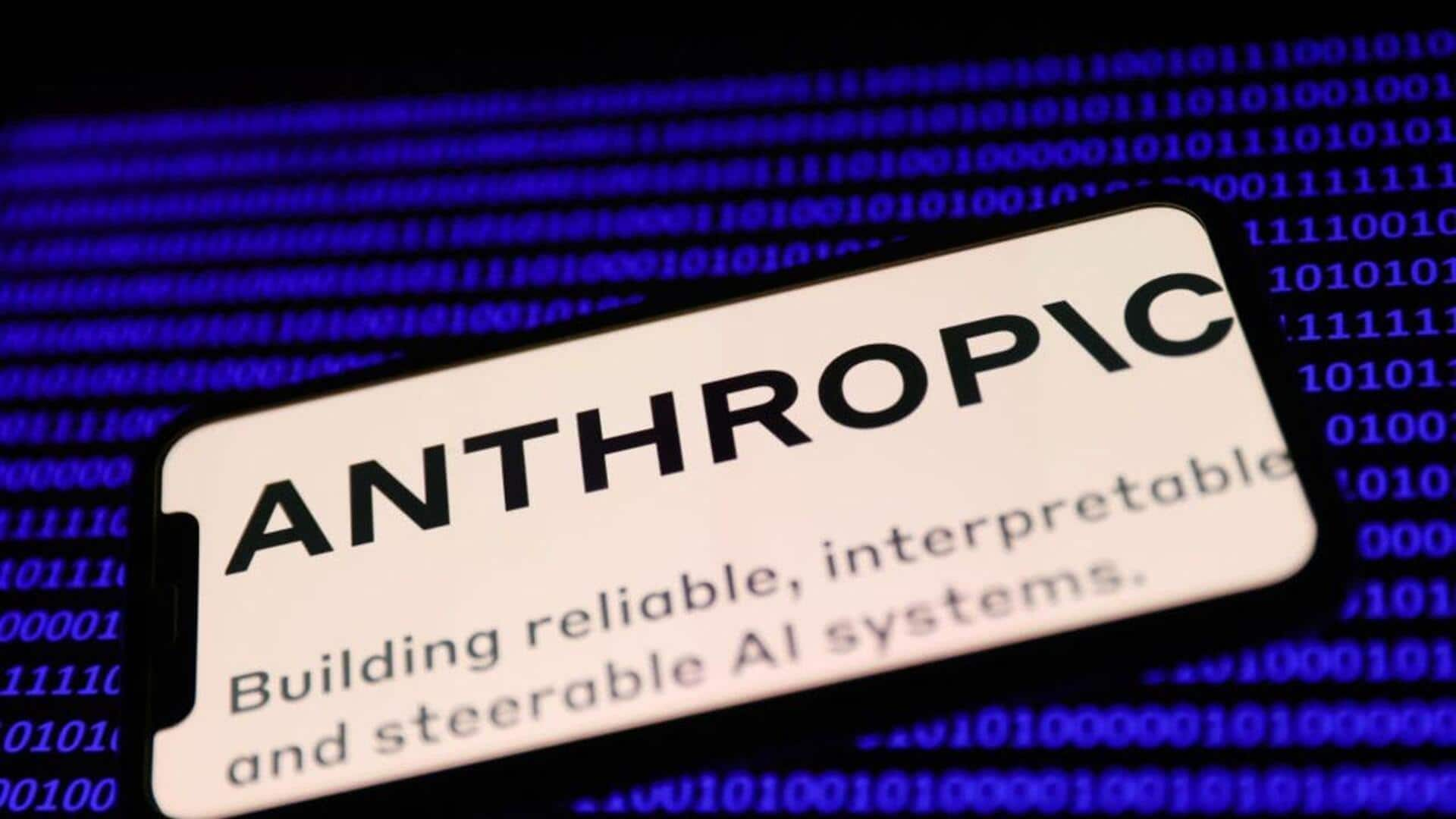
Anthropic's AI training deemed 'fair use' in landmark copyright ruling
What's the story
Anthropic, a leading artificial intelligence (AI) company backed by Amazon and Alphabet, has won a major legal battle. A federal judge in San Francisco ruled that the company's use of copyrighted books to train its AI system was legal under US copyright law. The ruling came from US District Judge William Alsup who said Anthropic's actions constituted "fair use" of the works by authors Andrea Bartz, Charles Graeber and Kirk Wallace Johnson.
Legal challenges
About the lawsuit filed by authors
The key ruling comes after a class-action lawsuit was filed against Anthropic by the three authors last year. They alleged that the company used pirated versions of their books without permission or compensation to train its Claude AI model. The case is one of many similar lawsuits filed by authors, media organizations, and other copyright owners against tech giants like OpenAI, Microsoft, and Meta Platforms over their AI training practices.
Legal defense
Fair use doctrine allows use of copyrighted works without permission
The fair use doctrine, which allows the use of copyrighted works without permission in certain circumstances, is a key defense for tech companies. This ruling is the first to address fair use in the context of generative AI. Anthropic had argued that its AI training promotes human creativity and transforms copyrighted material into new content. The company claimed it copied the books to "study plaintiffs' writing, extract uncopyrightable information from it, and use what it learned to create revolutionary technology."
Transformative technology
Ruling could have far-reaching implications for future of AI
Judge Alsup agreed with Anthropic that its training was "exceedingly transformative." He compared the company's large language models (LLMs) to a reader aspiring to be a writer, saying they were trained not to replicate or replace works but to create something different. This ruling could have far-reaching implications for the future of AI and copyright law in the US as well as other countries.
Information
Judge Alsup ruled against Anthropic for storing copyrighted works
While Judge Alsup ruled in favor of Anthropic regarding AI training, he found that the company's storage of the authors' books in a "central library" violated their copyrights and was not fair use.